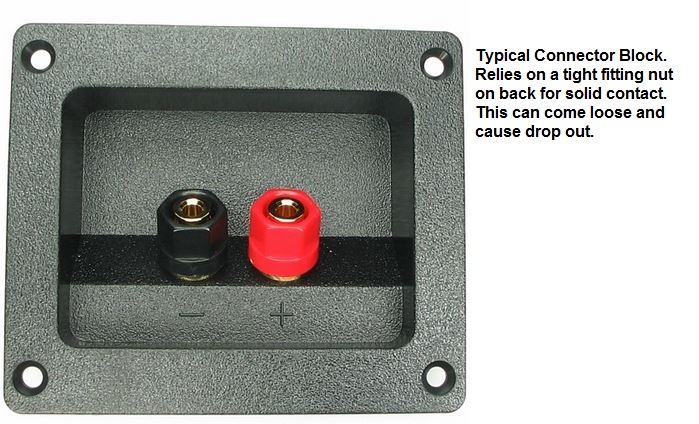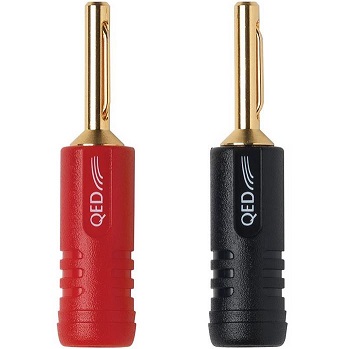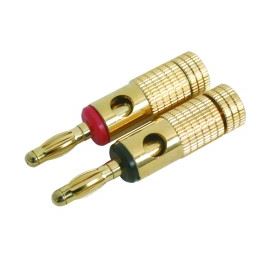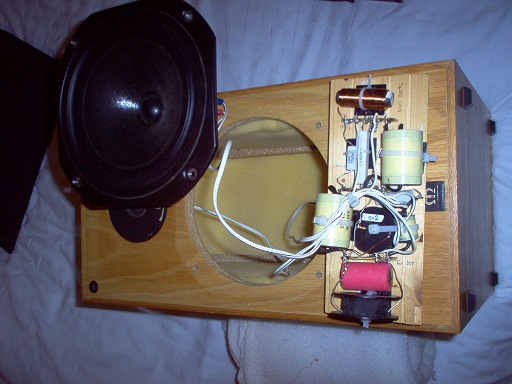I am having an issue where I am getting a static sound in both mid/bass drivers in my speaker build. This is the second time I am producing the same speakers and no static in the first pair.
It is a two way design with a second order crossover. The problem drivers are Eton Arcosia 6” drivers with the phase plug.
I have taken apart the speakers and resoldered them. I have checked the crossovers and no obvious issue there. I have tried 5 amplifiers in three locations. Happens in each location.
99% of the time the sound is fine. It is only on ultra deep bass notes that the static happens. The easiest way for me to trigger it is Three Wishes from Roger Waters. The Djini’s voice does it. Volume is loud, but not crazy. Maybe 80 to 85dB.
Any ideas?
It is a two way design with a second order crossover. The problem drivers are Eton Arcosia 6” drivers with the phase plug.
I have taken apart the speakers and resoldered them. I have checked the crossovers and no obvious issue there. I have tried 5 amplifiers in three locations. Happens in each location.
99% of the time the sound is fine. It is only on ultra deep bass notes that the static happens. The easiest way for me to trigger it is Three Wishes from Roger Waters. The Djini’s voice does it. Volume is loud, but not crazy. Maybe 80 to 85dB.
Any ideas?
Could this be the sound of the coil former bottoming out?
Are these vented, could you try plugging it?
Are these vented, could you try plugging it?
Not sure
i don’t think that would be the case since I have on pair with the same drivers that doesn’t have the issue and one pair that does. Should happen in both of that was the case. These are vented but also have a true phase plug so I am not sure plugging it would matter.
I can give it a try though.
i don’t think that would be the case since I have on pair with the same drivers that doesn’t have the issue and one pair that does. Should happen in both of that was the case. These are vented but also have a true phase plug so I am not sure plugging it would matter.
I can give it a try though.
Simplest way to check is to install the questionable drivers into the known good speaker system.
Or else install the known good drivers into the questionable speaker system. Maybe both.
The mfr could have made a bad run of drivers.
Or else install the known good drivers into the questionable speaker system. Maybe both.
The mfr could have made a bad run of drivers.
I can snap pictures and will post after I swap drivers.
Rayma, yes, that makes sense as it controls for all variables and confirms if it is the driver or the crossover. Excellent suggestion and I can’t believe I didn’t think of it.
Rayma, yes, that makes sense as it controls for all variables and confirms if it is the driver or the crossover. Excellent suggestion and I can’t believe I didn’t think of it.
sooo...I tested the drivers in the other speakers. Sounded perfect. It must me some issue with a solder joint somehow in both speakers. The only thing I can think to do is take everything apart and put it back together with every solder joint fluxed and resoldered
No chance. Tried recording it and the volume required overwhelms the microphone.
The static is sort of like the static you would hear on a bad phone call back when we used land lines. It only happens at moments of very deep bass. My guess is that the deep bass is causing a mediocre solder joint to vibrate slightly causing the static.
The static is sort of like the static you would hear on a bad phone call back when we used land lines. It only happens at moments of very deep bass. My guess is that the deep bass is causing a mediocre solder joint to vibrate slightly causing the static.
Like the base of a beaten up former crinkling each time it hits?
You say you've tried five amplifiers. I suppose that rules out stability issues, but I assume these are different powered amps. I assume the issue happens at the same sound level regardless (due to it being the speaker that is the problem).
You say you've tried five amplifiers. I suppose that rules out stability issues, but I assume these are different powered amps. I assume the issue happens at the same sound level regardless (due to it being the speaker that is the problem).
Yes, it only happens at high volumes. I have tried a two different 150w amps, 100w, 70w, and 60w for a speaker that is easy to drive. Stability is not the problem.
My best guess is that something is a hair off in a solder joint and the vibrations from the deep bass are causing something on the board or the binging posts to vibrate and lose contact. The binding posts are horrible to solder.
My best guess is that something is a hair off in a solder joint and the vibrations from the deep bass are causing something on the board or the binging posts to vibrate and lose contact. The binding posts are horrible to solder.
Ive had similar results in the past with a crossover fault;
The lead in wires for the main low pass inductor to the woofer were crossing over each other and effectively bypassing the inductor, even though they were not physically touching and were insulated. I repeat, high frequencies were shortcutting this inductor because the inductor lead in wires were crossing over each other. The "static" was massive cone breakup from the woofer. Thats why I ask for photos of your crossover. I removed the inductor, seperated the lead in wires and reinstalled, problem completely solved.
Wait; upon rereading your post you say only on ultra deep bass notes.. you sure its not port noise or just massive IMD?
Edit; upon further rereading you say its a second build pair - is a cable in the cabinet just bouncing on the woofer or some stuffing/lining loose somewhere, maybe an air leak? Would be hard to pinpoint "static" at high volumes over the program playing
The lead in wires for the main low pass inductor to the woofer were crossing over each other and effectively bypassing the inductor, even though they were not physically touching and were insulated. I repeat, high frequencies were shortcutting this inductor because the inductor lead in wires were crossing over each other. The "static" was massive cone breakup from the woofer. Thats why I ask for photos of your crossover. I removed the inductor, seperated the lead in wires and reinstalled, problem completely solved.
Wait; upon rereading your post you say only on ultra deep bass notes.. you sure its not port noise or just massive IMD?
Edit; upon further rereading you say its a second build pair - is a cable in the cabinet just bouncing on the woofer or some stuffing/lining loose somewhere, maybe an air leak? Would be hard to pinpoint "static" at high volumes over the program playing
Last edited:
A poor connection sounds like the culprit!

This is a good connector, IMO. 4mm banana. Prefereably hard soldered to fresh copper cable. Never like screwdown connection at all.

This is a type I like less, the loose expanding sleeve on the tip only makes contact connection.

You can test a speaker by shorting out the input with a single speaker wire loop. If the connection is dubious somewhere, you will hear sort of crunching noise or crackle from the tweeter when you push the bass cone in.
Oh, don't forget crimped spade connectors to the drivers can be dubious too. They can oxidise and come loose. It's a poor picture, but those red and blue things connecting to the bass:

This is a good connector, IMO. 4mm banana. Prefereably hard soldered to fresh copper cable. Never like screwdown connection at all.
This is a type I like less, the loose expanding sleeve on the tip only makes contact connection.
You can test a speaker by shorting out the input with a single speaker wire loop. If the connection is dubious somewhere, you will hear sort of crunching noise or crackle from the tweeter when you push the bass cone in.
Oh, don't forget crimped spade connectors to the drivers can be dubious too. They can oxidise and come loose. It's a poor picture, but those red and blue things connecting to the bass:
Last edited:
I haven't read any details here. Is there a chance a crossover capacitor in the woofer circuit was physically damaged in some way? In a 2nd order low pass; the capacitor that effectively goes "across" the woofer can see higher voltages. If for some reason a capacitor is breaking down under voltage this could make for some nastiness. Like I said; I'm not up to date on everything you have tried or others have suggested so just kind of throwing this out there!
Took the speaker apart. Reassembled it. Same problem. Wasn’t a solder joint.
Built a new crossover, problem went away. Must be either the inductor or the capacitor in the shunt. The new parts I have are likely from a different batch of caps and inductors.
Speakers sound great now. Eventually I will figure out what the bad part is. No time right now to troubleshoot, but yes, there is a chance it is a bad cap or it got damaged.
Built a new crossover, problem went away. Must be either the inductor or the capacitor in the shunt. The new parts I have are likely from a different batch of caps and inductors.
Speakers sound great now. Eventually I will figure out what the bad part is. No time right now to troubleshoot, but yes, there is a chance it is a bad cap or it got damaged.
An inductor is usually as tough as old boots. NP Electrolytics in the metal cans must be the most likely to fail. They consist of foil, blotting paper and a wet electrolyte. Often dry out and leak. There was a "plague" of badly made electrolytics 20 years ago. Wrong preservative. Wiped out millions of computer motherboards.
Yep, inductors can take a lot of abuse compared to capacitors. An electroltytic for sure can crap out early (dry out). I wasn't aware of the bad batch; probably made for some very un happy people! The MTBF of an elctrolytic is about 10 years (when used in power supplies, etc.). I've had amplifiers that went more than 20 years before they dried out. Think about an inductor; if it shorted out in series with a driver (low pass); you would just get an increase in higher frequencies; not the same in a high pass circuit though where it would be a short across the driver. This is why I suspect you had a bad cap.
Glad you solved it!
Glad you solved it!
- Home
- Loudspeakers
- Multi-Way
- Static from both speakers